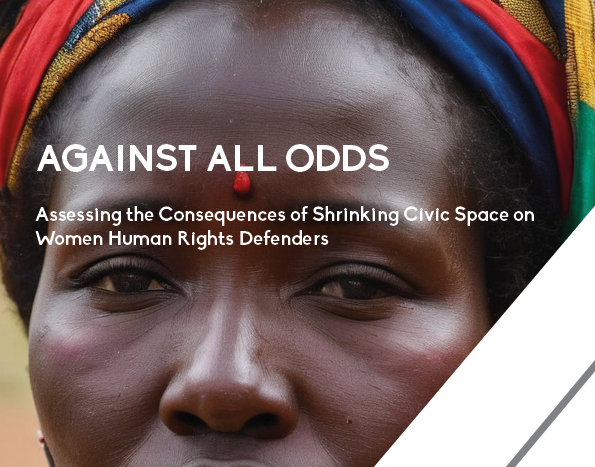South Sudanese women have been pivotal in the pursuit of peace and human rights, from the Comprehensive Peace Agreement (CPA) of 2005 to subsequent peace agreements which ultimately led to the Revitalized Agreement on the Resolution of the Conflict in the Republic of South Sudan (R-ARCSS). Despite their resilience and significant contributions, WHRDs in South Sudan face a hostile environment shaped by deeply entrenched patriarchal values.In addition to gender-based challenges, WHRDs much like other HRDs, encounter intimidation, threats, stigmatisation, legal restrictions, physical attacks, and criminalisation due to their human rights work. These challenges are further exacerbated in rural areas where traditional gender norms hold stronger sway.
WHRDs are particularly susceptible to various forms of gender-specific threats and violence in both public and private spheres. This includes gendered verbal abuse, sexual harassment, rape, and SGBV. Regrettably, such acts can lead to additional marginalisation and exclusion, including through social stigma. Even individuals who support or are closely connected to WHRDs, including family members, are not immune from being specifically targeted.
Moreover, WHRDs often find themselves at the center of attacks aimed at tarnishing their reputation and challenging their sexuality. These assaults often stem from non-conformity with stereotypes governing “appropriate” behavior for women and men. Conservative narratives that confine women to family and procreation roles contribute to this targeting. Consequently, WHRDs are frequently targets of hostility when participating in collective public actions or movements, both online and offline, sometimes resulting in their isolation and estrangement from their communities and families. Security authorities in South Sudan often display hostile attitudes toward WHRDs. Victims of violations often face blame for “bringing harm upon themselves” when reporting offenses, especially in Wau, Aweil, and Bentiu.
Restrictions on women’s attire and bodily autonomy are common in South Sudan. In some regions, like Bentiu, authorities dictate women’s clothing choices, leading to violent consequences for non-compliance. Furthermore, WHRDs may face accusations of promoting foreign values. These threats, risks, and violations are further exacerbated in contexts marked by conflict, disaster, economic and political instability.
Law enforcement presents a substantial obstacle to the protection of WHRDs. Peaceful demonstrations are less and less tolerated, and many WHRDs live in fear due to repeated threats and harassment by state operatives.
The report’s findings also reveal the limited knowledge of legal frameworks, ineffective advocacy strategies, insufficient funding, poor organisation, and restricted access to legal recourse. These challenges hinder WHRDs’ ability to effectively promote human rights and social justice in South Sudan. Their limited understanding of legal frameworks makes them more vulnerable to potential legal consequences. Inadequate advocacy strategies suggest that WHRDs may struggle to communicate their objectives effectively and garner support for their causes. The issue of insufficient funding not only restricts their operational capacity but also reflects broader resource disparities in the activist landscape. Poor organisation particularly in rural areas, implies a lack of infrastructure and coordination, significantly affecting their collective impact. Finally, limited access to legal recourse means that WHRDs may encounter difficulties seeking justice and protection when their rights are violated.
While challenges persist, South Sudanese WHRDs demonstrate remarkable resilience by forming self-sustainable unions, associations, and networks in the different States. These community-based initiatives offer crucial support for WHRDs in the face of adversity.
In summary, this report provides a comprehensive account of the situation of WHRDs in South Sudan. It outlines their experiences, challenges, and needs, while also presenting key recommendations to address the unique obstacles they face in their pursuit of human rights.

